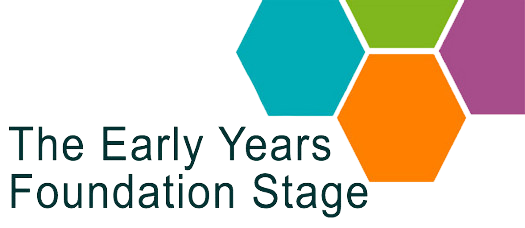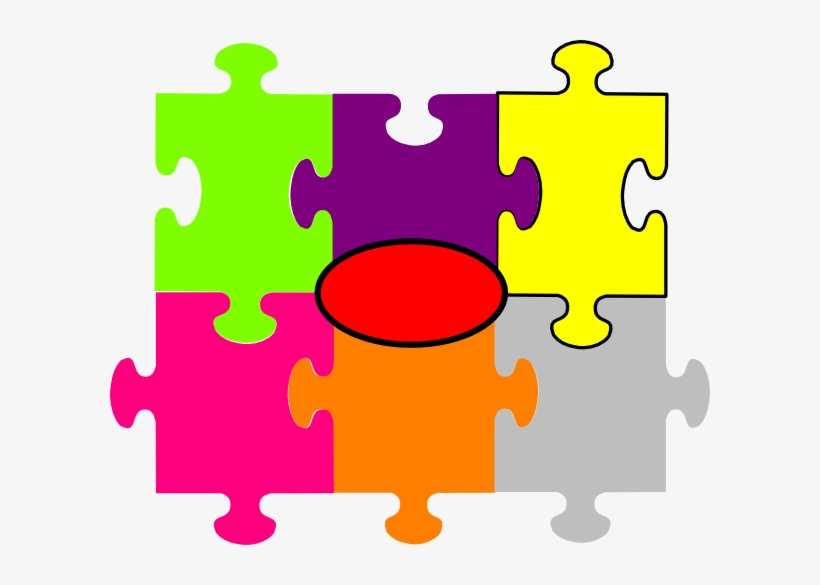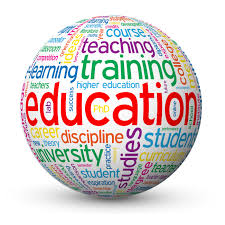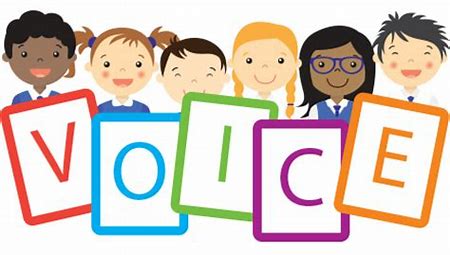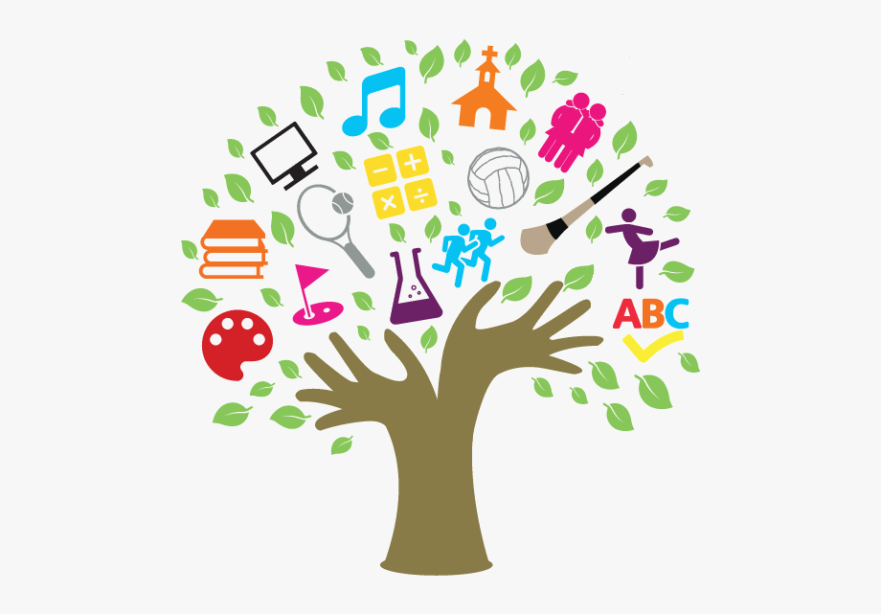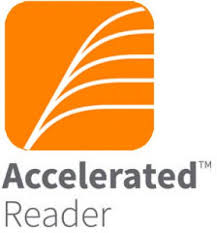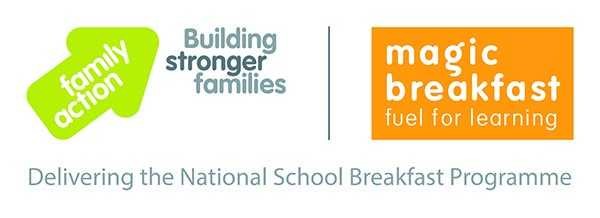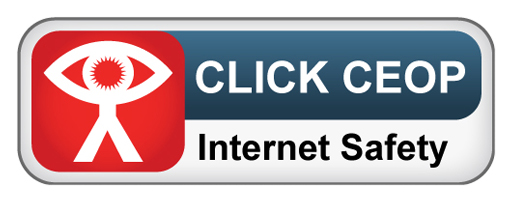Early Years Foundation Stage
Intent
At South Avenue Primary School we understand the importance of building good foundations for future learning and our provision in the Early years reflects this. We are committed to nurturing a lifelong love of learning alongside the aims of the EYFS statutory framework to ensure all children have a secure and confident start to their school life.
We have high expectations, consider the development of the whole child and seek to foster resilience and independence. We innovate our children to take the lead in their learning, encouraging confidence to explore new ideas, take risks, make links and seek challenge.
We aim to provide the essential knowledge and skills that children need to prepare them for their future success and to give children the best possible start to their early education. Our curriculum is designed to meet the needs of every child; ensuring no child’s achievements are limited, regardless of their background, circumstances or need.
We provide inviting classroom environments indoors and outdoors to stimulate learners and engage them in developing the three ‘Characteristics of Effective Learning’ as set out within the EYFS.
The EYFS curriculum encompasses our school motto…
We discover, we learn, we grow
We carefully plan our EYFS curriculum to meet the following aims:
- Foster a love of learning which inspires curiosity.
- Provide experiences of awe and wonder.
- Develop high levels of engagement, collaboration and cooperation.
- Provide meaningful opportunities that are influenced by the children’s interests and experiences.
- Develop Independence and Resilience
- Ensure all children have access to high quality learning opportunities with purposeful resources and in an enabling environment.
- Provide a curriculum responsive to individual needs.
- Express themselves with confidence in a meaningful way.
- Respect the opinions and values of themselves and others.
- Ensure communication and positive interactions are embedded in practice.
- Provide parents/carers with the opportunity to develop their child’s learning at home.
- Develop knowledge and understanding of the community and wider world.
Implementation
- Quality first teaching across all areas of the curriculum.
- Stimulating and purposeful learning environments indoors and outdoors.
- Well planned and organised continuous provision which allows the children to learn through play.
- A balance of child-initiated and adult led learning opportunities which are carefully planned and provide opportunities to build on prior learning.
- We promote a love of learning through real-life experiences that are relevant to our children.
- Effective practitioners who are committed to nurturing positive relationships and purposeful interactions.
- Good parental partnerships which encourage parents to become involved in school life and support their child’s learning at home.
- Systematic approaches to teaching reading to ensure all children learn to read. High quality phonics is started as soon as children begin reception.
- Opportunities for children and their families to develop a love of reading.
- Planned opportunities for outdoor learning to enhance all areas of the curriculum.
Impact
- Children feel happy and safe and enjoy coming to school.
- Evidence of strong links with parents.
- High levels of engagement and motivation demonstrated from children.
- Children are independent and can express their needs in a meaningful way.
- Children demonstrate the characteristics of effective learning and are well-prepared for the next stage in their learning.
- All children access a balanced and challenging curriculum regardless of their background, needs or abilities.
- Confident and capable readers who demonstrate a love of reading.
- Children are supported by adults that are well-trained and passionate about providing the best education for every child.
- Children make good progress from their starting points and are offered a broad curriculum which meets each child’s unique needs.
- The percentage of children achieving GLD within the EYFSP is in line with or above the national average.
EYFS Statutory Framework
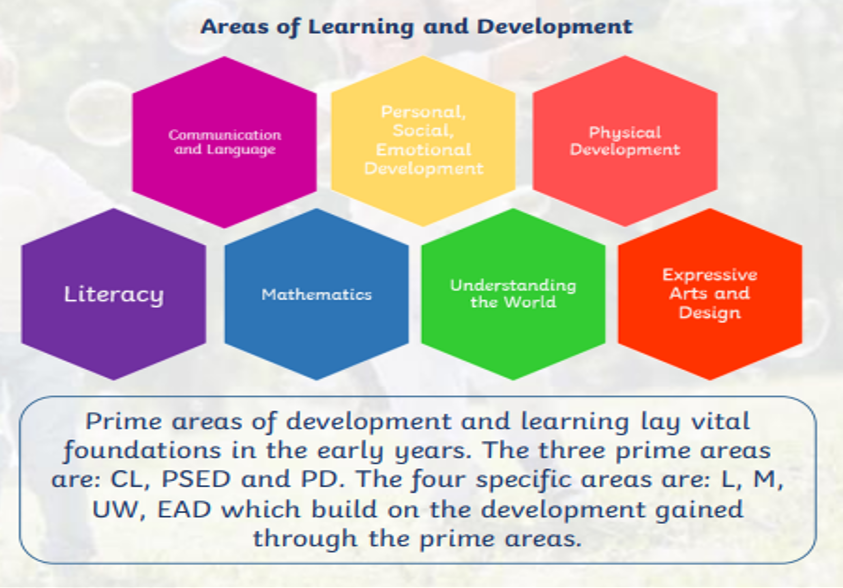
Characteristics of Effective Learning
Characteristics of Effective learning describe behaviours children use in order to learn. To learn well, children must approach opportunities with enthusiasm, motivation and curiosity. Effective learning must be meaningful to a child, so they are able to use what they have learned and apply it in different and new situations. These abilities and attitudes of our little learners will support them to make good progress in all areas of learning and development
The three characteristics of effective teaching and learning are:
Playing and exploring – children investigate and experience things, and ‘have a go’
Active learning – children concentrate and keep on trying if they encounter difficulties, and enjoy succeeding.
Creating and thinking critically – children have and develop their own ideas, make links between ideas, and develop strategies for doing things.
How do we learn in the EYFS?
The EYFS Statutory Framework does not prescribe a particular teaching approach.
In our classrooms, you will see children playing alone or with their peers, independently choosing how to spend their time, using resources that they have decided to use for their own purpose or agenda. You may see a child playing and listening to an adult, who is modelling how to achieve something or teaching a new skill.
Adults will scaffold a child’s play by taking their play to a higher level through careful questioning or entering the child’s play to become a co-creator and helping them to think about what they know and what else they could learn from their chosen activity. Sometimes this is an activity that is just beyond the child’s ability but allows them to problem-solve and take risks and challenge.
We carefully plan what the children to learn in the classroom and through provision enables them to learn from their interests alongside extending their knowledge and understanding through clear routines and short periods of direct teaching.
“Young children learn from those they trust and with those who foster enthusiasm for learning.”
Trevarthen, 2002
|
|
|
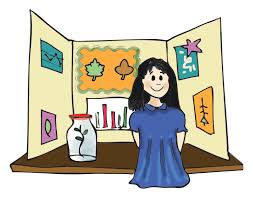 EYFS Photo/Events Gallery EYFS Photo/Events Gallery |
Pupil Voice |
|
|
Useful Links for Home
When we give every child the best start in their early years, we give them what they need today. We also set them up with every chance of success tomorrow.
Development Matters [DfE, 2021]
